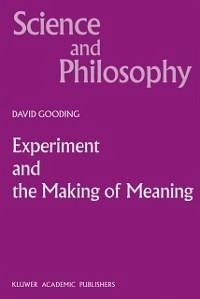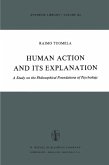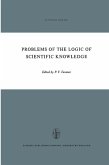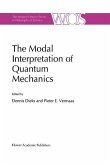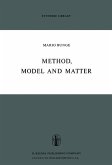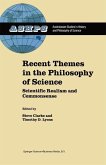. . . the topic of 'meaning' is the one topic discussed in philosophy in which there is literally nothing but 'theory' - literally nothing that can be labelled or even ridiculed as the 'common sense view'. Putnam, 'The Meaning of Meaning' This book explores some truths behind the truism that experimentation is a hallmark of scientific activity. Scientists' descriptions of nature result from two sorts of encounter: they interact with each other and with nature. Philosophy of science has, by and large, failed to give an account of either sort of interaction. Philosophers typically imagine that scientists observe, theorize and experiment in order to produce general knowledge of natural laws, knowledge which can be applied to generate new theories and technologies. This view bifurcates the scientist's world into an empirical world of pre-articulate experience and know how and another world of talk, thought and argument. Most received philosophies of science focus so exclusively on the literary world of representations that they cannot begin to address the philosophical problems arising from the interaction of these worlds: empirical access as a source of knowledge, meaning and reference, and of course, realism. This has placed the epistemological burden entirely on the predictive role of experiment because, it is argued, testing predictions is all that could show that scientists' theorizing is constrained by nature. Here a purely literary approach contributes to its own demise. The epistemological significance of experiment turns out to be a theoretical matter: cruciality depends on argument, not experiment.
Dieser Download kann aus rechtlichen Gründen nur mit Rechnungsadresse in A, B, BG, CY, CZ, D, DK, EW, E, FIN, F, GR, HR, H, IRL, I, LT, L, LR, M, NL, PL, P, R, S, SLO, SK ausgeliefert werden.
`The main argument of this important book is designed to put human agency at the centre of any account one could give of the way scientific knowledge is produced. '
Rom Harré in European Journal of Physics, 13 (1992)
`We are in danger of misunderstanding and unnecessarily devaluing the recent achievements of our culture. David Gooding's work has pried open the black box and found inside the basis for not only a more complete picture of science, but for a more balanced image of its achievement and a saner assessment of the authority we should acknowledge it to possess. '
Jim Tiles in British Journal for the Philosophy of Science, 45 (1994)
` ..I highly recommend it to anyone who takes seriously Imre Lakatos's paraphrase of Kant that "philosophy of science without history of science is empty, history of science without philosophy is blind." '
Allan Franklin in ISIS, 83:1 (1992)
Rom Harré in European Journal of Physics, 13 (1992)
`We are in danger of misunderstanding and unnecessarily devaluing the recent achievements of our culture. David Gooding's work has pried open the black box and found inside the basis for not only a more complete picture of science, but for a more balanced image of its achievement and a saner assessment of the authority we should acknowledge it to possess. '
Jim Tiles in British Journal for the Philosophy of Science, 45 (1994)
` ..I highly recommend it to anyone who takes seriously Imre Lakatos's paraphrase of Kant that "philosophy of science without history of science is empty, history of science without philosophy is blind." '
Allan Franklin in ISIS, 83:1 (1992)
`The main argument of this important book is designed to put human agency at the centre of any account one could give of the way scientific knowledge is produced. ' Rom Harré in European Journal of Physics, 13 (1992) `We are in danger of misunderstanding and unnecessarily devaluing the recent achievements of our culture. David Gooding's work has pried open the black box and found inside the basis for not only a more complete picture of science, but for a more balanced image of its achievement and a saner assessment of the authority we should acknowledge it to possess. ' Jim Tiles in British Journal for the Philosophy of Science, 45 (1994) ` ..I highly recommend it to anyone who takes seriously Imre Lakatos's paraphrase of Kant that "philosophy of science without history of science is empty, history of science without philosophy is blind." ' Allan Franklin in ISIS, 83:1 (1992)

